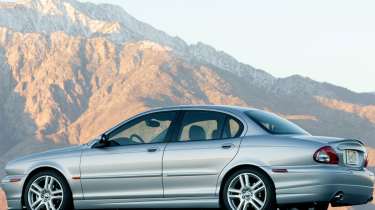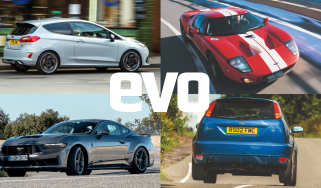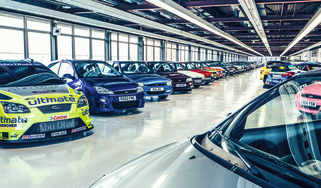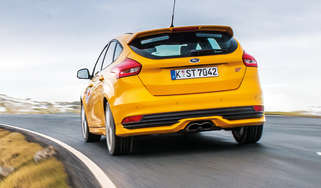Ford prepares to dump Jaguar and Land Rover
Ford chief Alan Mulally poised to give poignant new meaning to 'cutting and running'
By the time you read this, Ford president and CEO Alan Mulally will be preparing to cut the leash that has held Jaguar to the giant US car maker for 18 years and run from any further risk of the Big Cat inflicting more financial bloodletting on Ford.
After much agonising within Ford, he has put the seemingly eternally loss-making Jaguar up for sale, together with Land Rover, in the face of improving but still daunting losses at the Blue Oval itself.
Three investment banks – Goldman Sachs, HSBC and Morgan Stanley – are advising on the sale in a buyer selection process likely to go on for some months. But the deed stands to be done not without regret, or even a fair measure of uncertainty for Mulally himself as to whether he is doing the right thing.
Unlike Ford’s clear-cut sale of Aston Martin to Prodrive’s David Richards and his Kuwaiti investors, this one stands to be what Cardiff Business School’s motor industry guru, Professor Garel Rhys, is fond of calling 'a bugger’s muddle' – for potential buyers, employees and suppliers alike.
In Ford’s ideal world the Land Rover component of its Premier Automotive Group (PAG) will be bundled up in the same package for sale to the same buyer. The two companies have some key elements in common, notably shared production at one plant, Halewood on Merseyside, and various, mainly Ford-sourced components such as engines. Turning both into standalone operations would be difficult, but to find another car manufacturer willing to take on simultaneously two competitors in such disparate market sectors is by any measure a tall order.
There is good reason for Mulally’s uncertainty over the disposals. The PAG division overall has made profits in only one year since 2001, but it was firmly in the black in the first quarter of this year. While Volvo is the profitability bedrock and is likely to be retained long-term by Ford, Land Rover itself is profitable and becoming more so. And, after having drained Ford of over £5bn, Jaguar might just be at the turning point – the XK and XKR are transforming perceptions of the brand, and the soon-to-be launched XF saloon should only improve matters.
Mulally perceives the risk, therefore, that a few years down the road hindsight will see Ford’s management of today pilloried for being so daft as to cut Jaguar loose at the very time it is ready to start snarling seriously at BMW and Mercedes. But it is a risk he is prepared to take. And judging by reaction on the day news leaked of the banks’ appointment as advisors – Ford’s shares rose, not fell – he is unlikely to have to defend a sale before shareholders.
Of concern to nearly 20,000 workers at Jaguar and Land Rover is the awareness that, even if there arrived another massive cash-machine parent like Ford, neither company can remain in its current form. Halewood is currently sustainable because it is being used for production of both the Land Rover Freelander and Jaguar X-type, yet Jaguar has no plans for another 'small car' and has already closed its historic home of Browns Lane, Coventry, and concentrated production at Castle Bromwich. Land Rover, meanwhile, also has a main plant at Solihull. But with the departure of X-type, the stark reality is that each company needs just one plant, not two, to get overheads down to acceptable levels.
So, who could be in the running for the purchase? Not Fiat, Renault or Peugeot for sure, despite Fiat having explored – and rejected – buying Land Rover as a way of plugging the SUV gap in its product range. Both chairman Bill Ford and Mulally have indicated that they could not with clear consciences authorise the sale of such historic brands to Asian interests (although in extremis that might change). Volkswagen already has enough brands to turn Heinz green with envy. JCB chairman Sir Anthony Bamford has previously expressed interest in Jaguar, but only if it came without Land Rover.
In the wake of the $7.4bn sale of loss-making Chrysler to the Cerberus private equity group, that once again raises the prospect of awash-with-cash hedge funds. Not Cerberus – its hands will be full with Chrysler – but maybe the New York-based fund led by former Ford chairman Jac Nasser, or indeed any one of a dozen certain to be poring over the sale’s particulars.
But not, surely, David Richards, at the head of another consortium; not with the 1000-employee Prodrive, Aston Martin to take forward and his imminent plunge into the shark-infested waters of F1? Don’t rule it out entirely. Richards tells me that not much over a year ago the idea of spearheading a takeover of Aston seemed inconceivable. Now – purely hypothetically, of course – 'anything is possible'.







